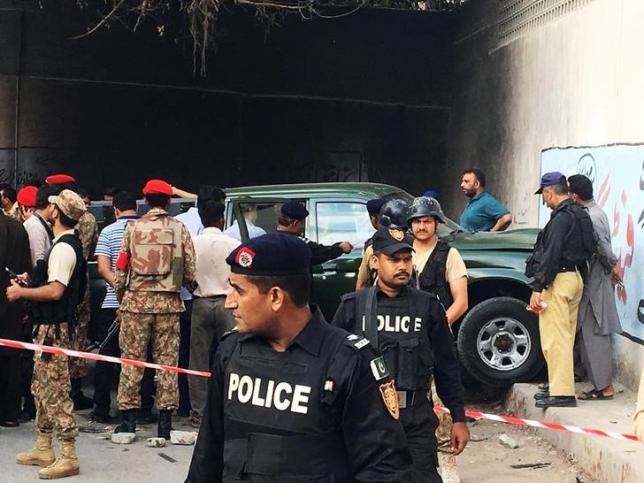
Pakistani police arrested two men on suspicion of distributing pamphlets for Islamic State (IS) following a raid in the northwestern city of Peshawar, officials said on Wednesday.
The military last month said it had stemmed the attempts of the Middle East militant group to expand its power in Pakistan. More than 300 people suspected of plotting attacks against government, diplomatic and civilian targets were arrested.
In response to Tuesday's raid, the police in the capital of Khyber Pakhtunkhwa province said the militants were operating in parts of Peshawar, including some from Islamic State.
"Some of areas in the provincial capital including Tehskal, Palosai, Charsadda Road and Regi are known for activities of militant groups such as IS," Ishtiaq Ahmed, a police official told Reuters.
Speaking on the condition of anonymity, another police official said two other suspects were also there, who managed to escape during the raid.
Reports say following the incidents in the neighbouring Afghanistan, there are fears that some of the home-grown Sunni militants of Pakistan could be drawn to Islamic State.
Pakistan has been suffering from sectarian violence for a long time. The Sunni militants were seen targeting minority Shi'ites as well as non-Muslim religious minorities in the country.
The frontier regions of Pakistan have been the sanctuary of fighters from al-Qaeda, the Taliban and other militant groups from a long time.
In August, a suicide bombing was claimed by the official Islamic State news service. The bombing took place at a hospital in the southwestern Pakistani city of Quetta killing 74 people.
However, the attack was also claimed by a breakaway faction of the Pakistani Taliban, Jamaat-ur-Ahrar. At one point of time, this group had declared support for Islamic State's Middle East leadership, but later it again switched back to the Taliban.









